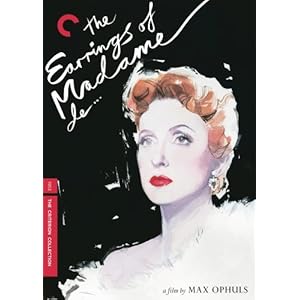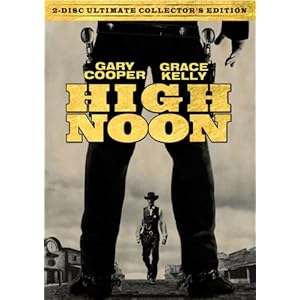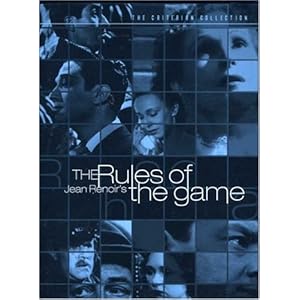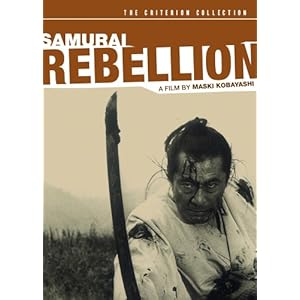A bit of the master's earlier British work, a movie from his golden age, and the last one he ever did.
The 39 Steps

I think this is considered one of Hitchcock's better early films, but I thought it was merely pretty good. A man gets involved in a spy conspiracy after a woman asks him for help, and he has to uncover the secret of what the 39 steps are before he gets captured or worse by the people behind it. The main character runs around a lot but the way the mystery gets solved is kind of silly and there really isn't much to the movie besides him running away. North by Northwest is pretty similar, but I think it was done much better.
Dial M for Murder

I think Hitchock was definitely at his best in the 50s, and Dial M is another feather in his cap. It actually came out the same year as Rear Window, but while it's not as good as that movie, it's still a solid thriller, and one that similarly takes place almost entirely in a single location. A man tries to put the finishing touches on a very elaborate scheme to murder his cheating wife, but of course the plan goes wrong and he desperately tries to cover his tracks while the police sniff around his apartment. It's a very cerebral film, and it's very easy at a number of points to go "wait, what?" as the little tricks and traps the characters place for each other start going off constantly. It comes together very well by the end, though.
Family Plot

Sort of an odd note for Hitchcock to go out on, Family Plot is half mystery and half sort of weird comedic thing. Certain bits that you wouldn't expect to be played for laughs are, but other moments are pretty dark. It stars a psychic and a cab driver/investigator who get a lucrative job to find an old woman's long lost relative, who turns out to be a murderous jewel thief. Espionage and hijinks ensue. Family Plot is not a bad movie at all, but it's definitely an unusual way for one of the best filmmakers ever to end his career.
Sabotage

A woman begins to suspect that her husband is a terrorist, but not before a lot of bad stuff happens to her. There are a couple nicely tense moments, but ultimately the only thing I'll probably remember about it is that it's the origin of the old clip from Inglourious Basterds in the scene where the narrator explains the combustible properties of nitrate film. It's quite short, and simply put, not much at all happens.
Sunday, January 1, 2012
Movie Update 34: Alfred Hitchcock
Thursday, July 21, 2011
Movie Update 11B
I couldn't fit all the labels I wanted into one post yesterday, so here's even more movies. The label issue was so severe I couldn't even neatly divide the films into themes! Labels!
The Earrings of Madame de...

A fancy French movie about fancy French people. There's nothing really wrong with this movie, I just didn't find a whole lot to love about it. The cast is solid, including Vittorio De Sica as an Italian man that the leading lady falls in love with, who I know better as the director of The Bicycle Thief. This movie doesn't really have the power of that one, but tells the story of a married woman who becomes attached to a pair of earrings she sold after her lover buys them back for her. My favorite part was just the way the film played with the idea of never actually giving you her name. Otherwise, it's a nice little romantic drama, mostly worth the time it takes to watch.
High Noon

High Noon is sort of the 24 of the 1950s. I liked it a lot more than I really expected. It has a similar problem to the last Gary Cooper movie I saw, where he was too old for his love interest, in this case Grace Kelly before Alfred Hitchcock got to her. In this case it didn't really hurt the film though, because his character is more likable and the story isn't about their relationship. It's about a lawman ready to retire, but dragged back into conflict before he can, as the whole town seems to turn against him during his darkest hour. The film is mostly in real time, as everyone anticipates the arrival by train of a criminal he had originally put away, apparently back for vengeance. He tries to rustle up a posse, but doesn't get the support he anticipated, and there's a fantastic sense of concern and dread as he runs out of options while the clock slowly ticks towards his likely demise. It's a pretty realistic movie, with an ending that has heroism without being too dramatic or fantastic. One of my favorite Westerns.
The Rules of the Game

I'm not sure anyone from the 30s had a better idea of how to shoot a movie than Jean Renoir. This is another fancy French movie about fancy French movie, although it's one I found more to latch onto in. It's an ensemble piece about the fickle lives of aristocrats, as they bounce from lover to lover without realizing the pain they cause. Renoir himself is among the cast, and they do a solid job of quickly selling their relationships and setting up the entanglements that eventually lead to the surprising and effective ending. Pretty darn good movie.
Samurai Rebellion

This one just seemed a bit too slow to me. I love Masaki Kobayashi's work (unfortunately I'm already almost out of films he made that are actually available), but Rebellion wasn't quite up to the power of Harakiri or the breathless scope of The Human Condition. It actually probably has roughly the same pace as Harakiri, and might even be quicker. But that film was coated in a pervasive, almost oppressive tension that seemed likely to snap into chaos at any second, and while Rebellion has a sad story, there just isn't that feeling. Toshiro Mifune was probably getting a bit old at that point to carry a whole movie on charisma alone (though he still handles the swordplay well), and Tatsuya Nakadi does a lot with his few scenes, but the character he plays is intentionally pretty neutral. It's a solid, no-nonsense samurai film, one that could have benefited from being pushed a little in either a darker or more fun direction.
Wednesday, May 9, 2007
Rear Window

The last movie I'll watch for my film class that I haven't seen before. Rear Window is really interesting because of how it's different from most movies. It could easily be made into a play. The entire movie takes place in Jimmy Stewart's apartment and the square behind it where he can look into the lives of his neighbors through their windows. Except for a few shots, the entire thing is filmed from inside one room. The focus is on acting and building tension. Because of the perspective, it's made more believable. Only a few people get significant actual screen time inside the apartment, a lot of the characters are only seen and heard from a distance. The cast works very well together and has good chemistry. Stewart is as excellent as he always is, he can handle any dialog and is a really likable guy.
The real crux of the story is the murder mystery. Stewart and his friends become increasingly suspicious of an insurance salesman, who they think murdered his wife. There is a balance going on as they keep discovering new things that sometimes support or refute the theory. They begin taking greater and greater risks to uncover the truth, and Alfred Hitchcock excels at creating tension while keeping the story within the realm of possibility. When you finally learn the truth, it's an odd moment, because a lot of the details are left unexplained. It's a good movie though, and it's gotten me interested in checking out some more work by Hitchcock.
What's interesting is we saw this not long after Disturbia came out. It's not exactly a remake, but it's basically the exact same idea. I haven't seen it, but it might be interesting to see how they handle it. I'm not sure how I feel about Shia LaBeouf. I like him, I guess, but I've yet to see him prove he can do something besides be goofy and actually act. He was decent in Holes, but it wasn't really that challenging a part, and he was just the sidekick in Constantine. Looking at his filmography on IMDb, I've actually seen him in a lot of movies. We'll see where his career goes from here.

































